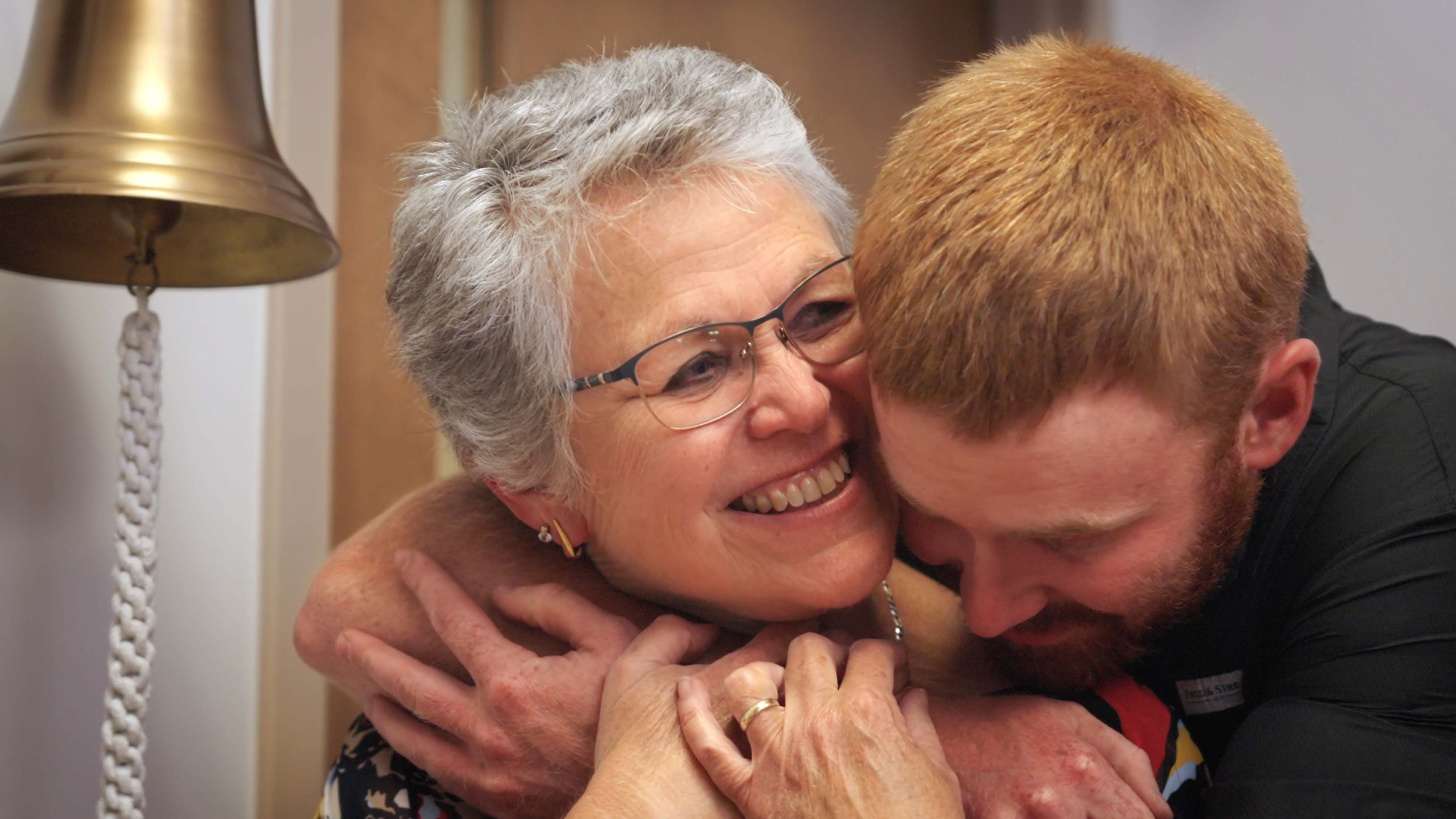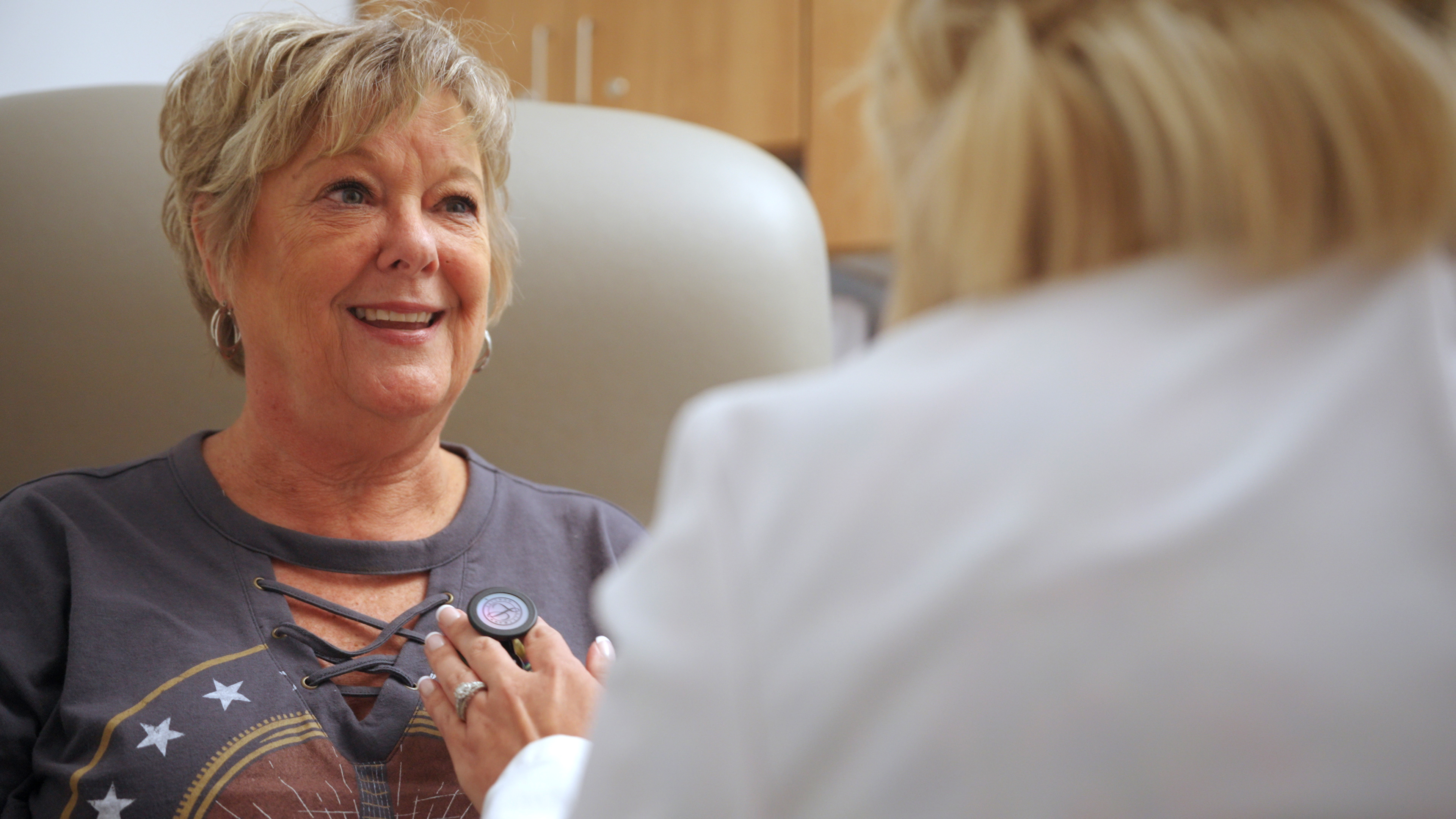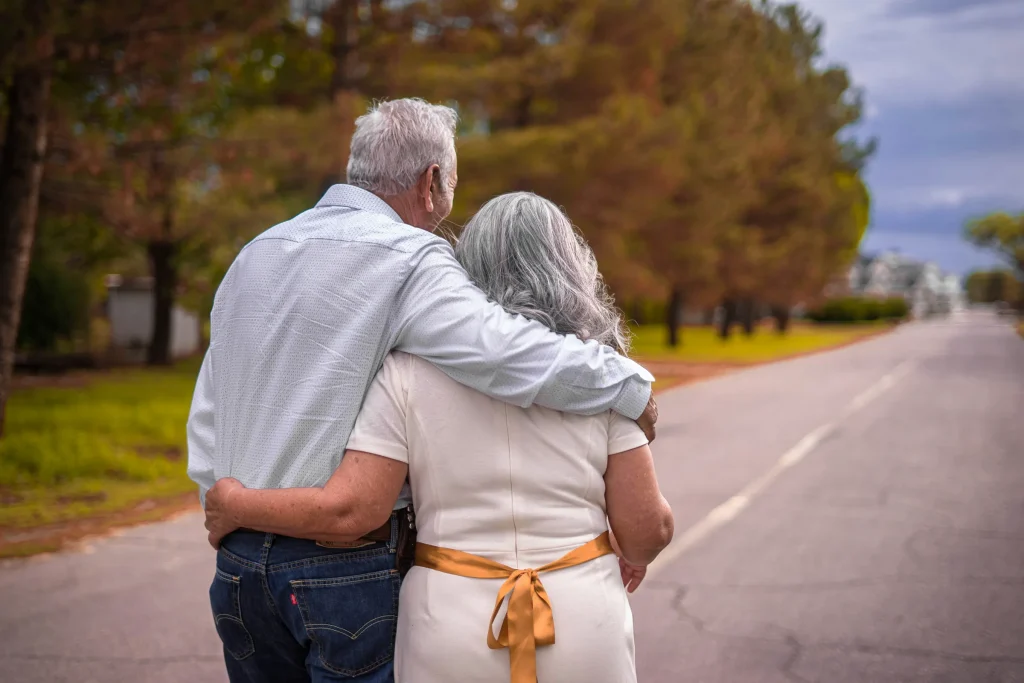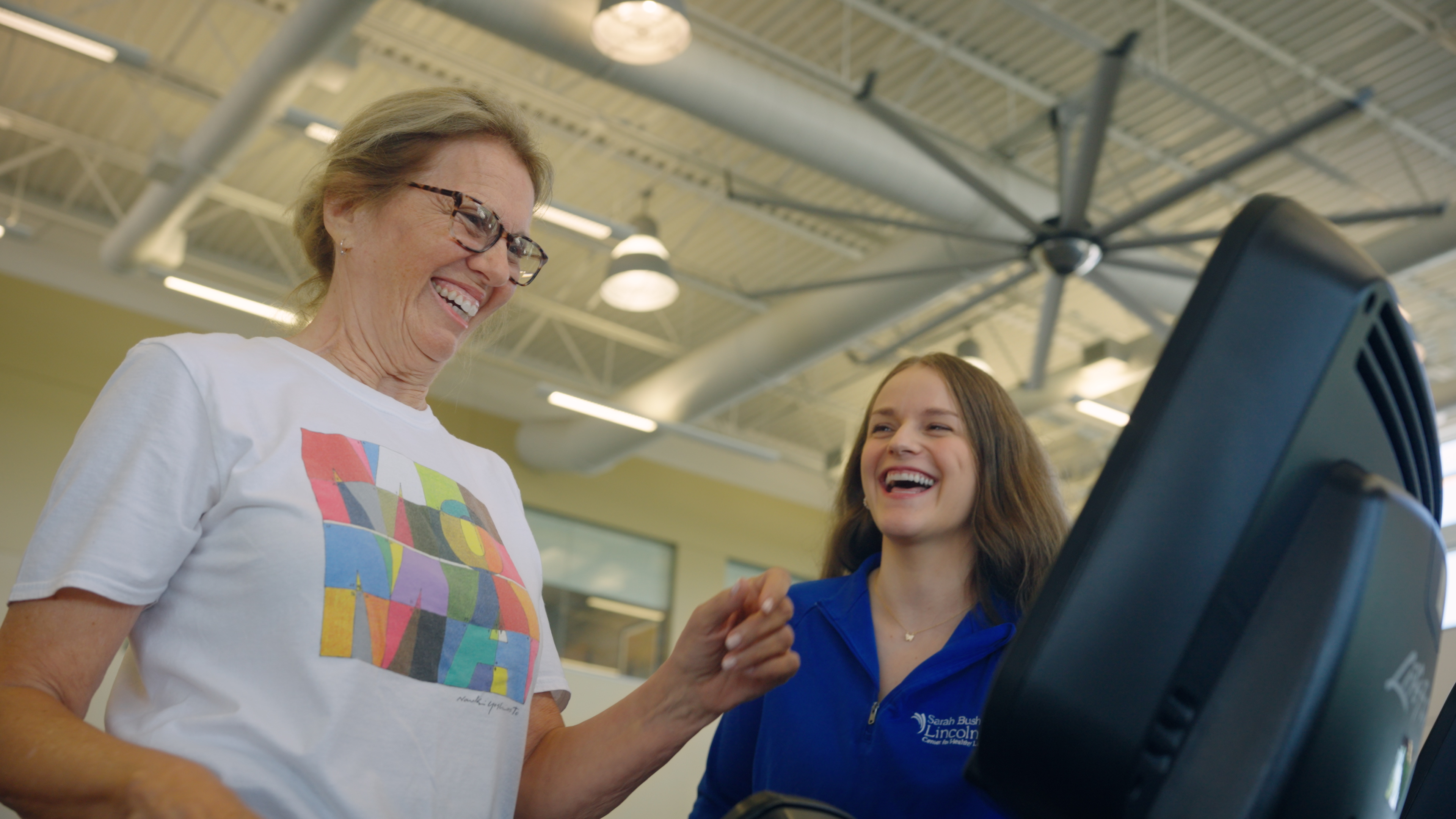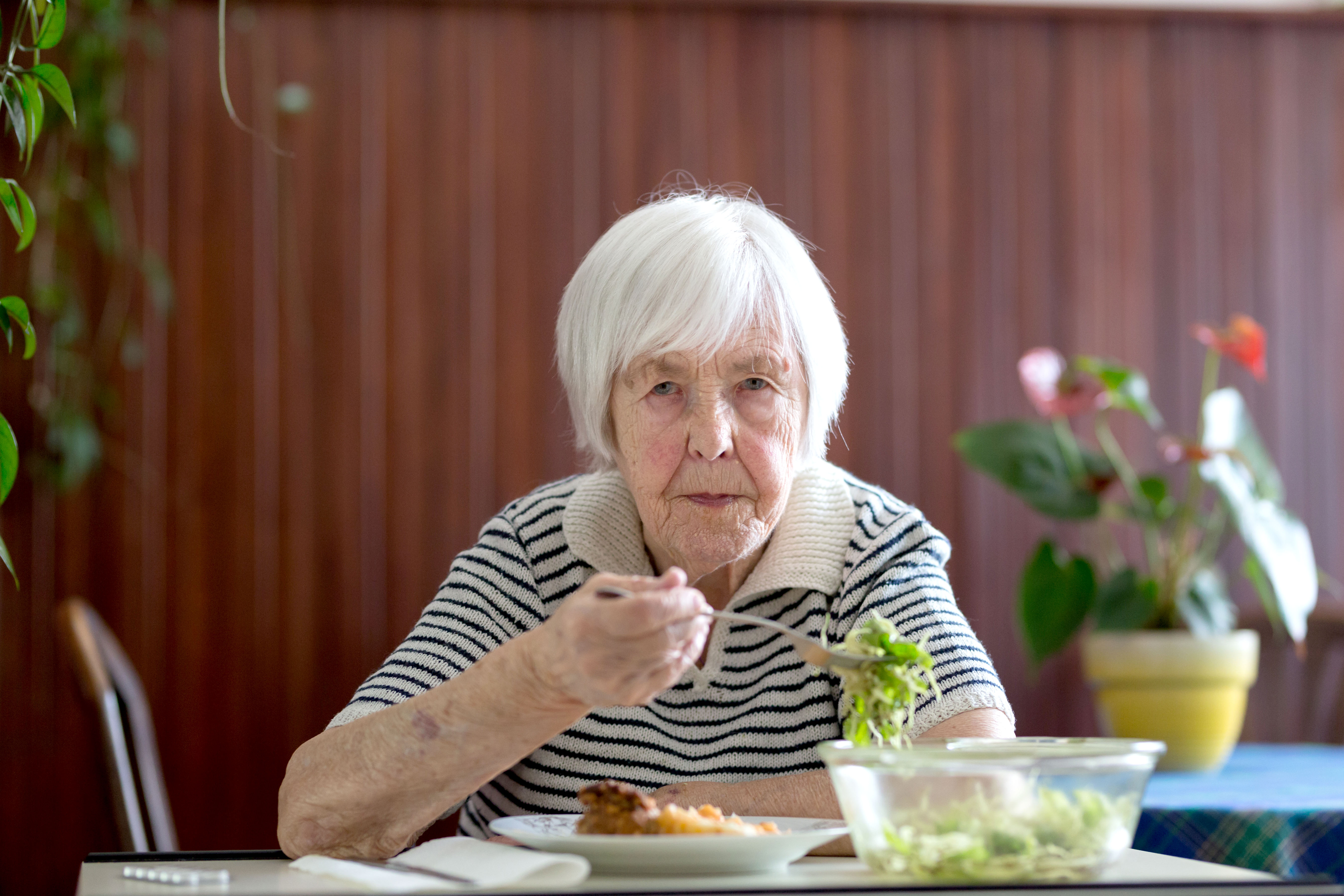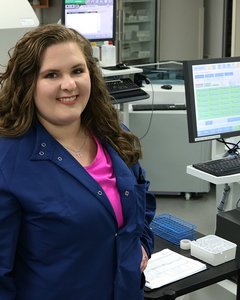During the COVID-19 pandemic, staff in the Sarah Bush Lincoln Laboratory have been busy finding ways to meet the testing demands.
Mikayla Grant, chemistry specialist, is responsible for implementing the COVID-19 antigen testing on the Lab’s Cepheid analyzer. The antigen testing is the nasopharyngeal swab used to collect the specimen for COVID-19 testing.
The antigen test is the best way to diagnose someone with an acute infection. Grant explained that after the specimen has been collected on the swab, it is placed in a sealed container of viral transport media. It is then transferred to a small enclosed cartridge that contains enzymes. The enzymes take the genetic material of the virus, and amplify it, so even the smallest amount of the virus can be detected.
Grant said, “This is really the gold standard of testing for viruses.” She added that because of technology, the test takes just about one and a half hours to run and lets the medical staff know quickly what type of precautions to take to stop the spread of the disease, and how to better treat the patient. “It is the same methodology we use to diagnose C Diff (C Difficile Colitis) and MRSA (Methicillin-resistant Staphylococcus aureus).”
Additionally, Grant is responsible for implementing the COVID-19 antibody testing on the Beckman analyzer. While the antigen test is used to detect the presence of the virus (indicating current infection), the antibody tests are used to detect exposure and/or immunity to the virus.
Grant explained that of the different types of antibodies, the IGG antibodies and the IGM antibodies show up in the blood stream shortly after being infected by COVID-19. The IGG antibodies are protective antibodies, but not enough information is known whether the IGG antibodies protect people from contracting the virus, or how long the antibodies stay in the blood stream.
An antibody test is commonly used to detect antibodies for other illnesses as well. “We look for whether your body has produced specific antibodies, and if sufficient antibody levels are present, we can determine immunity.”
For COVID-19, however, these levels are still being determined. Checking COVID-19 antibodies shows a person was exposed to the virus and had an immune response, but scientists not certain just yet, what it means for an individual’s immunity. It’s useful for epidemiological studies – to see how many people have been exposed – and for studying the prevalence and severity of the disease in specific geographic areas. And it’s also used to identify people who have produced antibodies and could provide convalescent plasma donation – an experimental therapy for patients with severe cases.
Regardless of its purpose, an antibody test should produce reliable, accurate results. There has been extensive media coverage of rapid, easy-to-use tests with questionable quality, but the Sarah Bush Lincoln Lab performs an immunoassay test that is more complex and can only be done in a certified laboratory. It is a qualitative test, reported as positive or negative, and takes about 35 minutes to run.
Talk with your doctor if you are a candidate for the COVID-19 antibody test.

